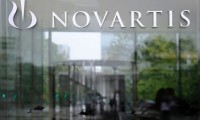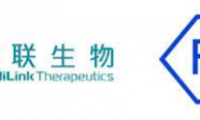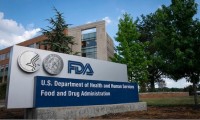-
Nexletol partners Esperion and Daiichi Sankyo patch up milestone dispute with $125M settlement
- Source: drugdu
- 79
- January 5, 2024
-
Pfizer rings in New Year with hemophilia B gene therapy nod in Canada
- Source: drugdu
- 114
- January 5, 2024
-
New Protein Risk Predicts Mortality Risk in Heart Failure Patients
- Source: drugdu
- 146
- January 4, 2024
-
Novartis Returns to Voyager Therapeutics to Reach New Gene Therapy Destinations
- Source: drugdu
- 187
- January 4, 2024
-
Longboard Pharma Trial Data Show How It Could Stand Out in the Epilepsy Field
- Source: drugdu
- 127
- January 4, 2024
-
After a down year, FDA signs off on a bounty of new meds, including 7 from Pfizer
- Source: drugdu
- 212
- January 4, 2024
-
Inside AbbVie’s $10B buyout of ImmunoGen—and the bidding war it swooped in on
- Source: drugdu
- 171
- January 4, 2024
-
Cancer Test Could Allow More Patients to Benefit from Immunotherapy
- Source: drugdu
- 192
- January 3, 2024
-
Making the Most of Real-World Data in Clinical Trials
- Source: drugdu
- 171
- January 3, 2024
your submission has already been received.
OK
Subscribe
Please enter a valid Email address!
Submit
The most relevant industry news & insight will be sent to you every two weeks.













